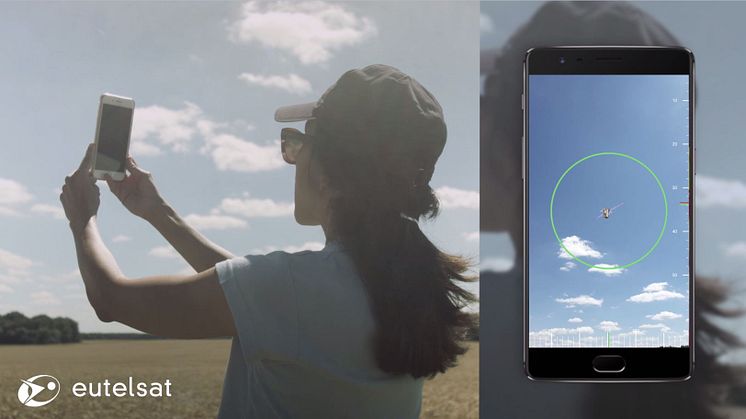
Blog post -
Changing the face of in-the-field connectivity for the humanitarian sector
It is fact that an increasing number of humanitarian crises affect the lives of men, women and children across the world. It is also fact that the consequences of these crises can last for weeks, months, even years. As these events occur they call on support that includes medicine, accommodation, food and education. Connectivity, to manage the logistics of efforts by aid workers and to enable people to communicate with family and friends is another essential component of managing crises that often occur in underdeveloped regions or areas where terrestrial infrastructure is damaged or destroyed. Satellite technology that delivers resilient and immediately available connectivity is one way to address this need. Simon Gray, Eutelsat's Vice President of Humanitarian Affairs is speaking at Future-Sat Africa in Abuja on July 11 to demonstrate how a new generation of easy-to-use, low-cost equipment is accelerating access to connectivity.

Simon Gray
No training or skills required
When a disaster hits, every minute counts. Response times have to be reduced to the minimum. Starting from this observation, Simon Gray, Vice President of Humanitarian Affairs at Eutelsat and an expert in equipment development and installation training, ploughed significant efforts into changing the paradigm of accessibility in emergency situations. In combining Eutelsat’s knowledge of off-the-shelf consumer connectivity equipment with the needs of aid workers, Simon and his team have designed holistic and low-cost satellite kits that are easy to transport, easy to deploy and easy to connect.
One of the major shifts enabled by this new approach was to replace the large and expensive satellite terminals that have been traditionally used in crisis areas with small, cost-effective consumer terminals, thereby facilitating logistics and response time.
Beyond this, taking on board the unique needs of aid workers in the field, Simon and team have designed a complementary three-part system that anyone can install, without training, specific skills or tools.
Online in 15 minutes
The holistic design of this equipment has been developed in-house by Eutelsat with selected partners and leveraging a continuous chain of technical innovation. The newest version of the kit comprises three elements that need only 15 minutes to assemble in order to provide aid workers with reliable and effective broadband connectivity:
1. A robust mast structure that fits into a carry-on bag and that can be set-up in less than five minutes;
2. A panel of unique apps* available on iOs and Android environments that enable users wherever they are to locate Eutelsat satellites and determine line of sight and modem parameters in a couple of clicks ;
3. A motorised satellite dish that works with a related app*, making pointing a quick and easy step to getting online – automated with one click.
*All the apps function without dependence on 3G networks. They only need a Wi-Fi connection provided by a router.
Watch our video to see how easy installation can be
Contributing to the satellite industry global effort
With dedicated equipment specifically designed to answer the needs of the humanitarian community, Eutelsat is part of a global industry effort that took a significant step forward in 2015 with the signature of the Crisis Connectivity Charter. Signatories to the Charter have committed to help the United Nations coordinate their actions with pre-planned, end-to-end communications solutions for aid workers and the affected population that can be deployed to disaster areas within 24 hours.
This was a new milestone for Eutelsat that already has a track record of collaboration with key players in the emergency telecommunications sector. Eutelsat is now in its tenth year of support to Télécoms sans Frontières (TSF), a unique NGO specialising in emergency telecommunications. In the past three years alone, TSF has been supported by Eutelsat in 18 emergency missions, including in Haiti, the Philippines, Greece, the Balkans and the Middle East, bringing lifelines to over four million people affected by crises. Eutelsat is also a longstanding partner of NetHope, an association that enables cross-sector collaboration between 50 NGOs and innovative companies in order to deliver better connectivity to affected communities.